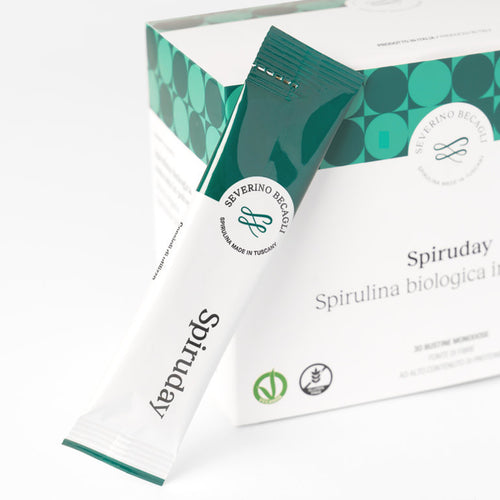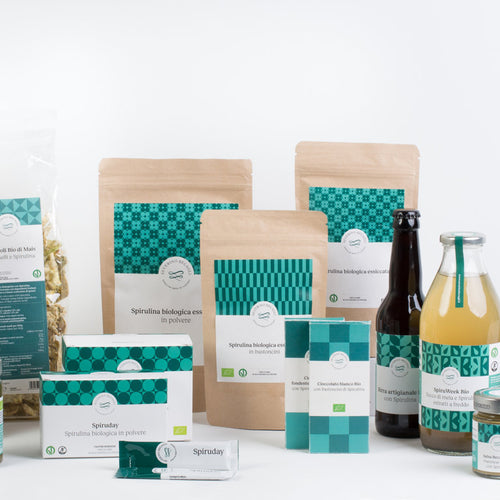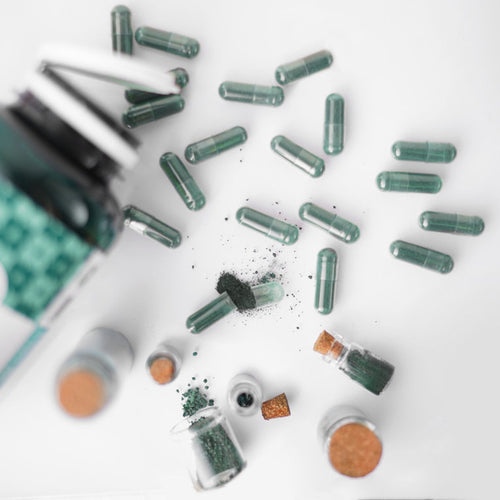If you are an athlete or if you just want to keep fit by keeping your body weight under control and obtaining beneficial effects for your body, you can try spirulina, which is marketed in various formats, both as a food and as a food supplement to be taken cyclically.
Spirulina, thanks to the substances that compose it, such as vitamins and mineral salts, turns out to be a valid aid for strengthening the immune system and for preventing cold or flu-related illnesses, but it is also recommended for growing children, provided that used in the right doses.
Does spirulina work or is it a scam?
As with all little-known products, caution and skepticism are almost a rule. However, opinions about this product are generally positive, although spirulina should not be considered a miracle supplement.
In fact, there is no scientific evidence that spirulina helps you lose weight, aids digestion or reduces anxiety and stress.
Some studies, still in the experimental phase, have however shown that spirulina acts beneficially on cholesterol and has antioxidant effects . Anses, which is the French food safety body, stated that spirulina may contain cyanotoxins, bacteria and traces of heavy metals (lead, arsenic and mercury) absorbed during growth and if grown in non-optimal environmental conditions, which they can cause allergies.
However, Anses reassures users by stating that if spirulina is taken in normal doses and from controlled sources, such as that of Severino Becagli, it does not present health problems.
What is spirulina?
Spirulina is considered one of the most popular foods in recent times. Its fame is also due to the fact that NASA announced it would introduce it into the astronauts' diet. Furthermore, this product is well known and used by vegetarians and vegans, who consume it in the form of tablets or powder.
We always talk about spirulina as an algae, but in reality it is a cyanobacterium of the Arthrospira family which has a high percentage of proteins (about 60-70%), compared to 25% of fish, 35% of soybeans and 14% of cereals. Thanks to this characteristic, spirulina is studied in various laboratories, with the aim of being introduced into the diet of subjects with nutritional deficiencies.
Furthermore, spirulina contains all the essential amino acids, i.e. those which are not produced by the human organism, but which are necessary for their characteristics and functions.
The nutritional properties of spirulina
If you intend to try this supplement, you should know that its intake, in the right doses and for limited and cyclical periods of time, can provide numerous benefits to the body. Among them, the most important are those relating to the immune system which is significantly strengthened and therefore if you take spirulina in critical periods such as autumn and winter you can counteract the onset of colds and flu.
Furthermore, spirulina, thanks to the presence of a vitamin complex (A, B, D, E) and mineral salts (iron, calcium, magnesium and potassium), is able to provide energy to your body, with a feeling of well-being general and therefore it could be very useful even if you are a sportsman, to obtain improvements in your performance.
If you have anemia problems, spirulina can help you, as it is rich in iron, which is easily assimilated by the body.
You may also be interested if you follow a vegan or vegetarian diet, as it is rich in essential amino acids and therefore, by taking it daily, you can reach the protein needs necessary for the body.
Furthermore, if used daily, spirulina is purifying and detoxifying for the body and, thanks to the active ingredients it contains, can keep cholesterol under control.
The skin also improves its appearance with the intake of spirulina, because it is rich in antioxidant substances and beta-carotene which have an important action to combat free radicals.
For women who have problems related to their cycle, spirulina comes in handy as it helps to regulate it and relieve any pain.
Side effects and contraindications
The side effects of spirulina are linked to the potential risk deriving from possible contamination with microcystins. If the spirulina is heavily contaminated with microcystins, even serious consequences could arise. This contamination occurs if spirulina is not grown in a protected and controlled environment.
We at Severino Becagli grow our spirulina algae in controlled and closed greenhouses, with purified water and without external contact with humans in the early stages of production and harvesting.
For the rest, spirulina is well tolerated by everyone. In case of predisposed people, cases of nausea, diarrhea, headache and sense of fatigue are reported.
Regarding contraindications, keep in mind that spirulina is rich in phenylalanine (2.6 - 4.1 g / 100 g), an essential amino acid that is impossible to metabolize for those suffering from phenylketonuria – a genetic pathology. In this case, to prevent this nutrient from accumulating in the brain causing very serious damage, it is necessary to avoid it.
Since spirulina strongly stimulates the immune system, increasing its functionality, we do not recommend the use of spirulina even to people who suffer from autoimmune diseases.
Our suggestion, in case of particular pathologies, is always to contact your doctor.
Spirulina as a supplement: the opinions of experts
Experts do not express themselves negatively with respect to spirulina, but they are not able to scientifically prove its beneficial effects, as no certain evidence is yet available that guarantees its benefits on the organism, but further in-depth and in-depth research is needed statistical data on significant samples of users.
For example, studies have been carried out on the administration of spirulina for the control of blood glucose in subjects suffering from type 2 diabetes mellitus, but there has been no subsequent study and no type of application in this regard.
However, among the supporters of spirulina is the WHO (World Health Organization) which describes it as a food very suitable for feeding children, due to its high iron and protein content.
In this regard, in 2003 the United Nations founded an important intergovernmental institution that deals with the use of spirulina to combat malnutrition in the world.
Other uses of spirulina
In recent times, interesting research and insights have been conducted relating to the use of spirulina for animal feed and in aquaculture.
In fact, it can be used to supplement animal feed, for example, up to 10% of poultry feed (but only less than 4% for quail). If the level of spirulina is increased up to 40 g/kg for 16 days in the diet of 21-day-old male chicks, a yellow and red coloring of the meat is obtained, precisely due to the presence of a yellow pigment (zeaxanthin), which it is one of the provitamins A.
For pigs and rabbits, spirulina percentages of up to 10% of the feed can be included, while if used in cattle feeding an increase in the production and specific weight of milk is obtained.
Spirulina used as an alternative raw material has also given positive results for strengthening the immune system and is therefore very useful in feeding buffalo and also in the aquaculture of some fish, including carp, sea bream and catfish.







